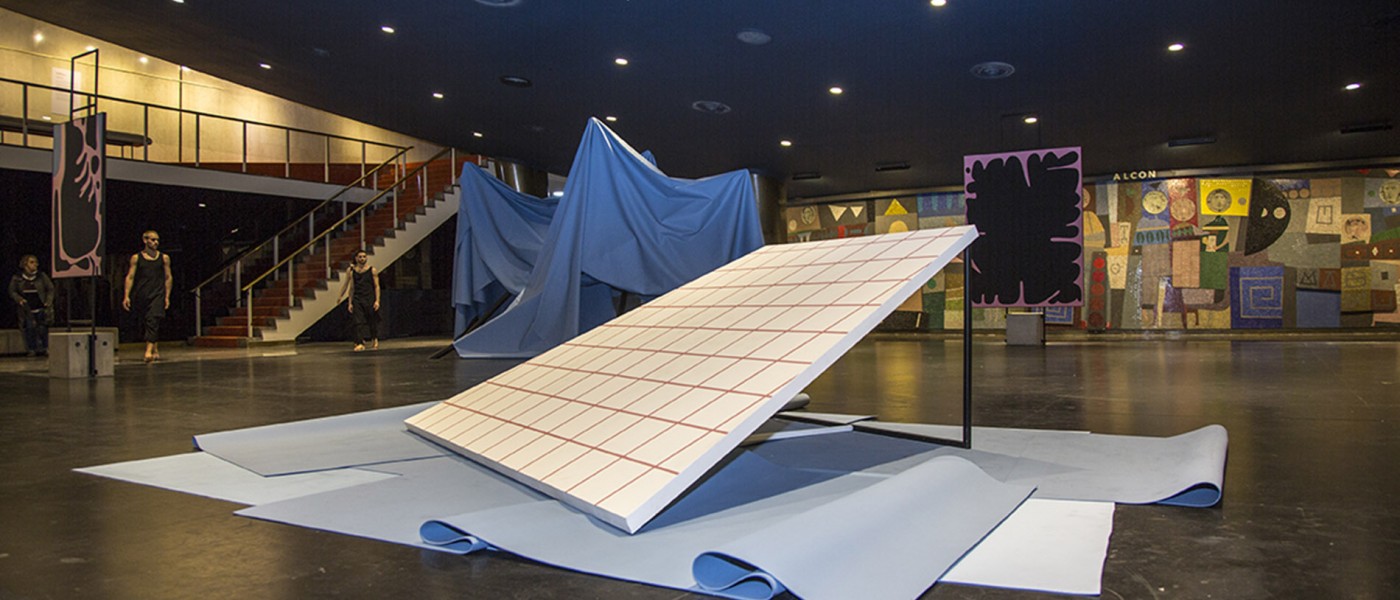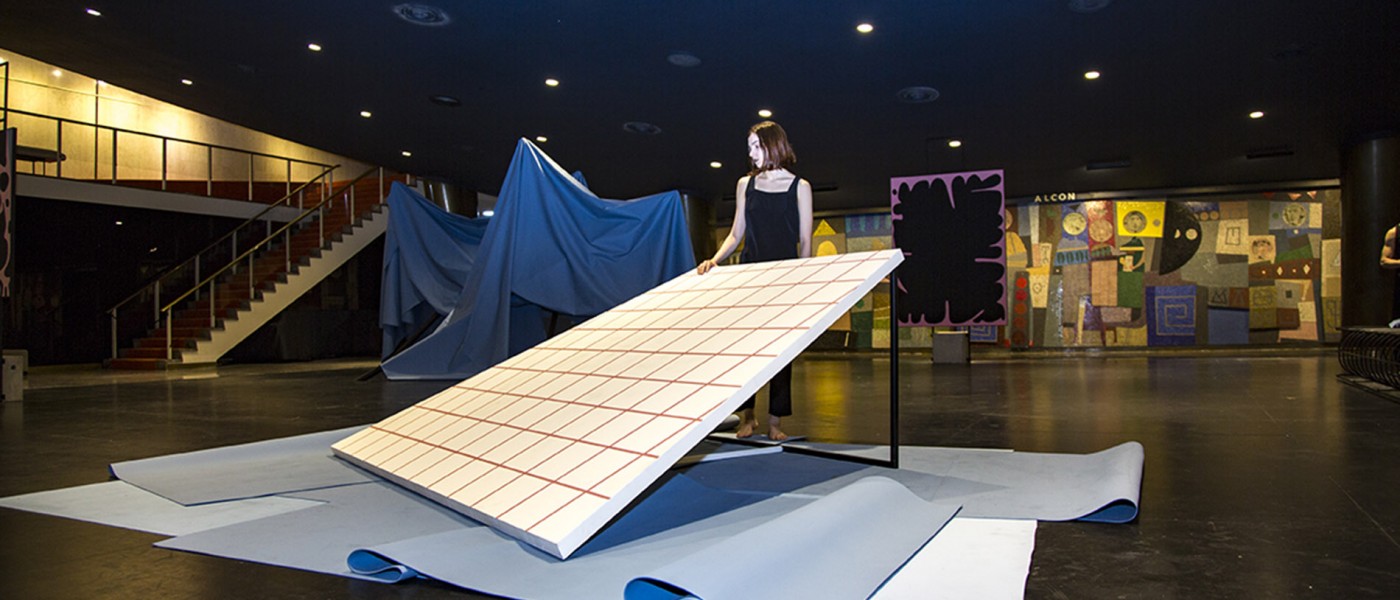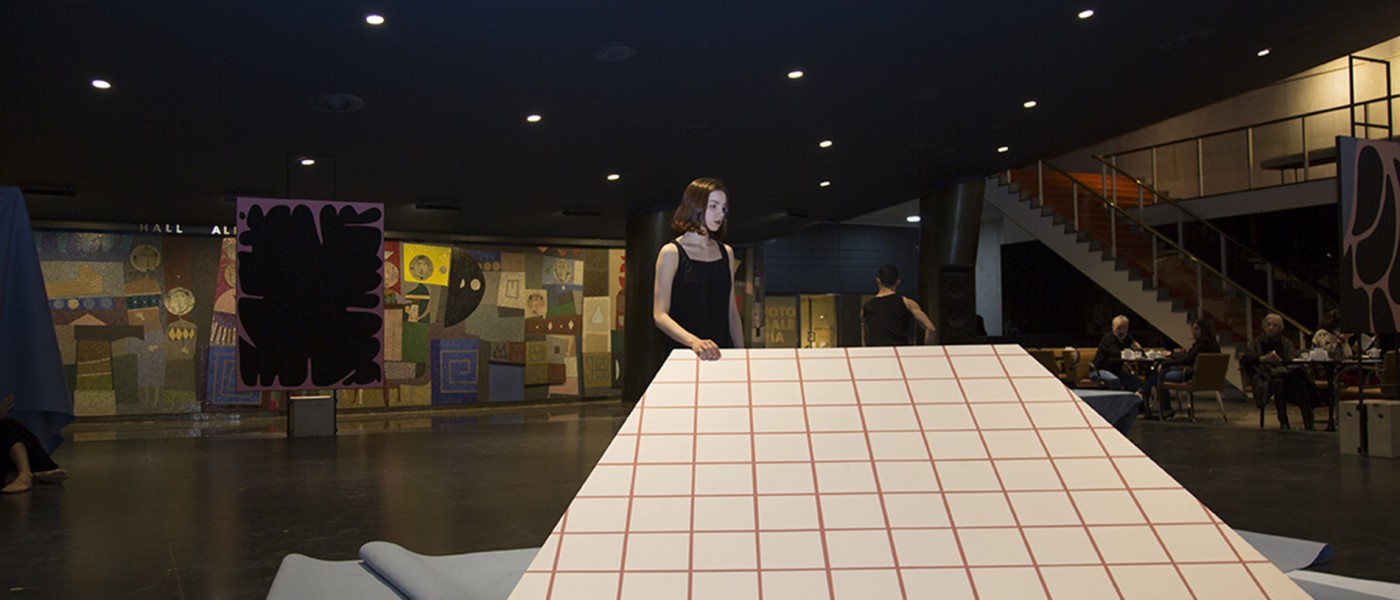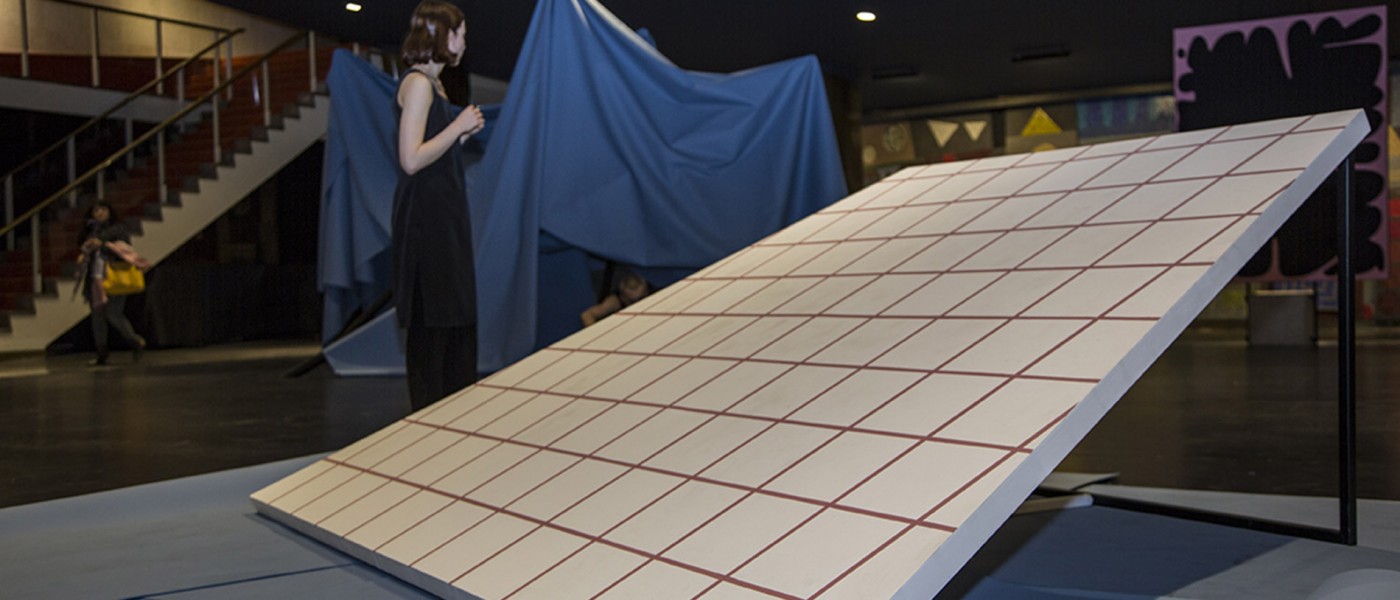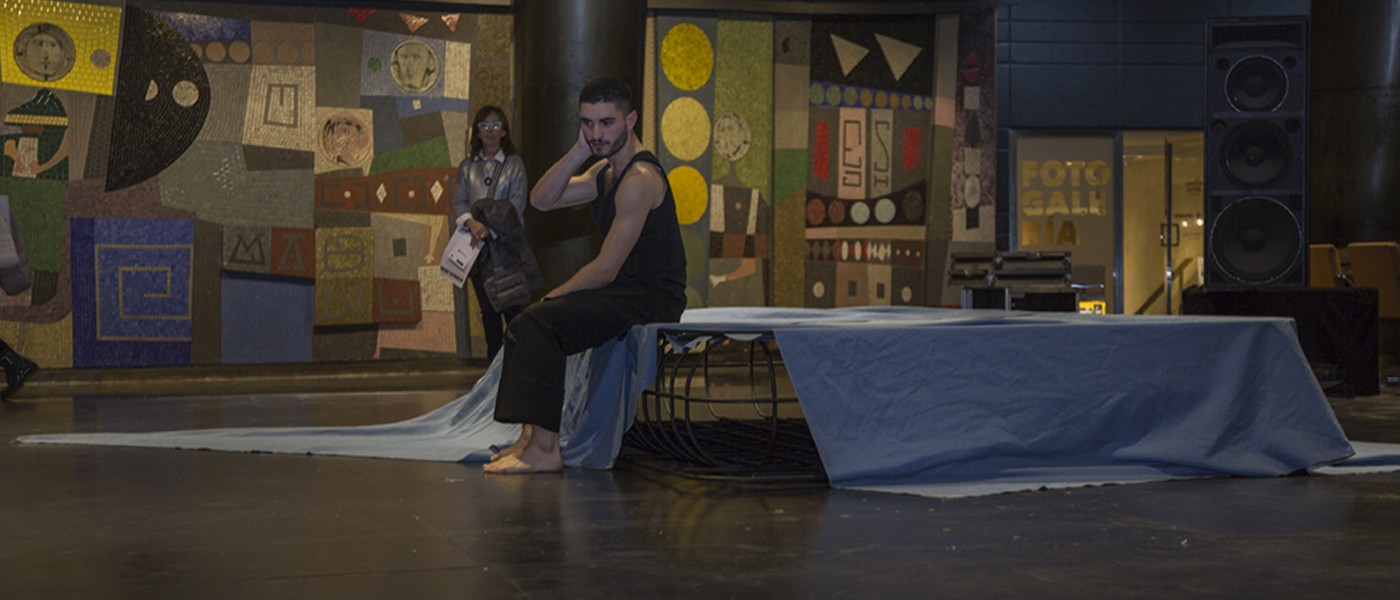The project continues to develop the process of multidisciplinary exploration defined by Leila Tschopp’s work in recent years. Here, Leila is proposing an installation showcasing four scenic situations, four proposals related to a specific intervention deployed in this space (Shipwreck, Shopwindow, Table, Bed). Paint, a body in movement, stagecraft and architecture are interwoven in constant dialogue, defying disciplinary and formal hierarchies.
“Based on the collision between images and appropriations, the objective of these scenic events is to build a mutating, hybrid language capable of creating an intimate world which evokes the fragility of the human condition and the historical nature of cultural identity. Different meanings are overlaid and combined in different ways, loose pieces of history inscribed within a new configuration that deconstructs the personal and the universal to shine a light on one zone, an ominous affective tonality,” explains the artist.
“Hades unfolds through four situations, within a disjointed and unsettling atmosphere that summons up the despoiling of a land at war. There are no complete images as everything is on the verge of dissolving. Vaporous and dim, the iconography evokes death, but not from a view centered on rupture but closer to the symbolic language of Hades: a dark deity with veiled intentions, impenetrable, laconic and invisible (but not transparent), a cruel yet melancholy god. Hades is the cycle of life, fecundity and death. It is the black night which precedes the day, the sinking of hope, barren fields, the dissemination of fragments. Violence and dwelling,” she concludes.

